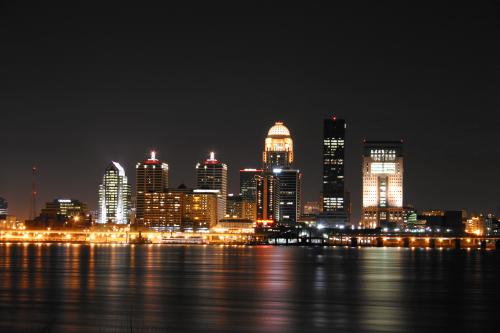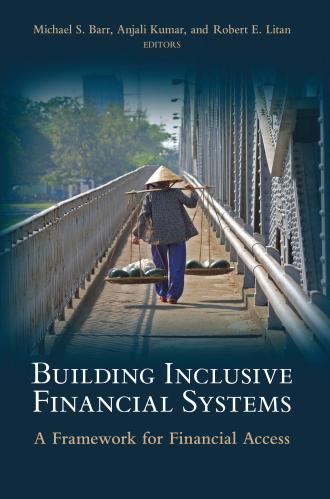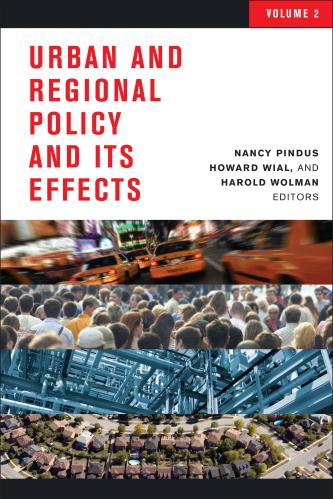Amy Liu’s recent paper, “Remaking Economic Development,” is disruptive in that it rightfully undercuts the shaky foundation of what draws many practitioners to the field: the idea that success is simply structuring transactions to attract new jobs and investment. These two metrics alone can’t diagnose the economic health or trajectory of a community. Instead, as the paper outlines, setting the right goals—measured by growth, prosperity, and inclusion—provides a much richer framework for a community’s trajectory, vibrancy, and opportunity.
Goal-setting clarifies how a community defines success and when it has been achieved, and promotes collaboration and increases buy-in from diverse stakeholders. If, as Liu argues, goals were designed to lead to growth, prosperity, and inclusion, metro areas would make dramatically different choices around policies, investments, and priorities, and people and communities would likely be in an overall stronger economic position.
However, these goals represent a longer-term proposition than conventional measures, and, perhaps naively, “Remaking Economic Development” fails to acknowledge the barriers that prevent most communities from setting the right goals:
- Goals should focus on long-term interests, but election cycles prioritize clear near-term political wins. Meaty investments in infrastructure, workforce development, and fiscal policy reform needed to shift the competitive position of a community rarely yield easily defined and clearly increased short-term political capital.
- Economies function as regions, but many municipal strategies are not aligned with regional goals. A metropolitan area is the logical unit to measure success, but civic leaders are elected from individual municipalities, or from a state that has a larger focus. Although it’s easier to market a region of 5 million people than a city of 650,000, in Detroit, intramural competition between cities and suburbs, suburbs and suburbs, and even neighborhoods within the city all undermine the cooperative effort to set goals regionally. The failure of mayors within a region to recognize their economic connectedness is a huge problem and fuels wasteful incentive battles over retail and other projects that are not economic drivers.
- Goal-setting takes time, money, and requires data, but capacity is in short supply. Most economic developers and political leaders lack the framework, experience, and manpower to effectively lead a goal-setting process. And if the choice is between collectively setting goals or managing a flurry of “bird-in-hand” transactions, the transaction under consideration will always receive resources first. Leaders are primarily evaluated on near term jobs and investment figures; not having the time to lead a goal-setting process and, in many cases, lacking the approach and datasets to appropriately undertake this activity make goal-setting easy to eliminate.
Despite these obstacles, setting the right goals is critical to building healthy communities. To combat political challenges, strong collaboration between business and public sector leadership is crucial, as is the recognition of diverse sub-economies with different value propositions and opportunities. Leaders must ultimately acknowledge that near term wins mean little if they are leading down a path that will not fundamentally address the long-term investment climate and the region’s productive capacities, grow wages or address employment levels, and offer broad opportunities for diverse economic participation. The following steps can help:
- Harness diverse, cross-sectoral perspectives. Fundamentally, businesses understand their industries better than anyone else; hence the public sector should identify ways to encourage growth, increased productivity, greater inclusion, and more competitiveness in targeted sectors by listening to businesses and jointly setting goals that marry private sector profit and public economic and social interests effectively. This approach may offset some of the other realities of short election cycles and limited capacity to participate in goal-setting or planning processes.
- Identify unique roles for communities within a larger regional framework. Although competition between local cities may inhibit the most meaningful dialogue and alignment of interests, deeper analysis often produces greater clarity on the niche opportunities for different communities. For example, although Detroit has a strong manufacturing base, a major project requiring more than 40 acres will likely have better site options in the suburbs. In the same vein, companies seeking a vibrant urban campus with easy access to food, living, and other amenities are likely better suited to Detroit than one of the surrounding communities. That said, both companies are likely to draw employees from communities all over the region. Effective goal-setting includes analysis that should allow municipalities to uncover their niche opportunities within a larger regional framework.
- Balance short-term and long-term priorities and successes. The truth is that near term investments are vital in creating momentum, providing stability, and creating jobs while long-term investments, policy decisions, and industry-focused asset development fundamentally position an economy to win over time. For example, incentives play an important role in offsetting competitive disadvantages in the short-term and should be used as a way to fill the gap while a community fixes the bigger economic challenges, ranging from exorbitant development costs to workforce development issues. The disconnect is that many communities are not focusing incentives on strategic, long-term priorities.
“Remaking Economic Development” elegantly exposes the shortsightedness toward aggressive deal-making that often prevents communities from thoughtfully building their long-term economic strength with an eye on growth, prosperity, and inclusion. Sadly, the economic development profession has historically focused on growth without much attention to prosperity and inclusion, which are arguably most important in building a sustainable economy. Goal-setting—painful as it may be—is the first step towards remaking the practice and establishing an honest foundation to build a better economy in the future.
The Brookings Institution is committed to quality, independence, and impact.
We are supported by a diverse array of funders. In line with our values and policies, each Brookings publication represents the sole views of its author(s).









Commentary
Setting the right economic development goals is hard work
April 4, 2016